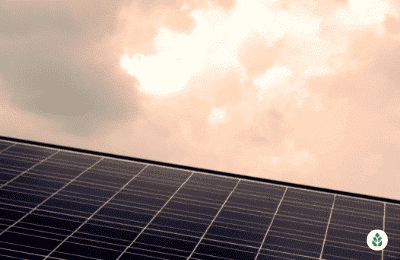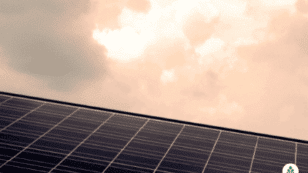
Solar Panel Cost in Massachusetts (2024 Local Savings Guide)
In this guide to determining solar panel costs in Massachusetts, you’ll learn:
- How does the cost of converting to solar in Massachusetts compare to the national average?
- Which incentives can help lower the average cost of solar panels in Massachusetts?
- What factors affect the total you’ll pay for solar equipment in Massachusetts?
Each product and or company featured here has been independently selected by the writer. You can learn more about our review methodology here. If you make a purchase using the links included, we may earn commission.
How Much Do Solar Panels Cost in Massachusetts?
The average Massachusetts homeowner will pay $16,926 for their solar panels after the federal solar investment tax credit (ITC). Before the credit is applied, the total for panels and inverters averages around $24,180. These numbers assume you would need a 6.5 kilowatt (kW) system — the typical size in Massachusetts — and would pay the average local cost per watt of $3.72.
The 6.5 kW standard system is suitable for offsetting the average monthly energy consumption of 602 kilowatt-hours (kWh) in Massachusetts.1 If you use well below or above that amount, your price to install solar could vary.
The chart below includes average solar system costs for different sizes in your area.
| Size of Your Solar Panel System | Typical Cost in Massachusetts (Before Tax Credit) | Cost After Federal Tax Credit | Average Home Size the System Can Support |
| 4 kW | $14,880 | $10,416 | 1,200 sq. ft. |
| 5 kW | $18,600 | $13,020 | 1,400 sq. ft. |
| 6 kW | $22,320 | $15,624 | 1,600 sq. ft. |
| 7 kW | $26,040 | $18,228 | 1,800 sq. ft. |
| 8 kW | $29,760 | $20,832 | 2,000 sq. ft. |
| 9 kW | $33,480 | $23,436 | 2,200 sq. ft. |
| 10 kW | $37,200 | $26,040 | 2,400 sq. ft. |
If you would like to know how much your personalized solar panel system would cost, you can select one of our top-rated solar companies below to get a free, no-obligation quote.

Blue Raven Solar

Regional Service
Average cost
Pros
- Industry-leading in-house financing
- Competitive pricing
- Excellent reputation
Cons
- Doesn't offer solar batteries (coming 2022)

Momentum Solar

Regional Service
Average cost
Pros
- Great warranty coverage
- Concierge service ensures steady communication
- Representatives are experts on local policies
Cons
- Slightly limited service offerings
- Only available in 11 states

Trinity Solar

Regional Service
Average cost
Pros
- Many financing options
- Family-owned and -operated
- Makes charitable contributions
- Relatively short workmanship warranty
Cons
- Limited service area
How Does the Current Cost of Solar in Massachusetts Compare to the National Average?
Massachusetts solar customers pay an average of $16,926 for their PV systems after the tax credit or $24,180 before the credit. The U.S. average cost of solar is significantly higher. Most U.S. residents pay around $20,979 post-credit or $29,970 before any incentives.
The cost per watt in Massachusetts for PV equipment — an average of $3.72 — is higher than the U.S. average of $3.33. This means your money gets you less equipment in Massachusetts than it would in most other states.
However, Massachusetts residents use well below the U.S. average amount of electricity — 602 kWh per month as compared to 881 kWh in the rest of the country. As such, you will need a smaller system to offset your utility bills, which means less equipment and lower overall costs.
The graphic below shows how the cost of solar PV systems in Massachusetts compares to the cost in other states.
Watch Below: Learn Which Solar Incentives to Claim in Massachusetts To Maximize Savings
How Are Solar Costs Trending in Massachusetts?
The cost of solar equipment in Massachusetts has fallen drastically over the past few years. According to the Solar Energy Industries Association (SEIA), the price of solar equipment has dropped around 53% in the last decade.
While the cost of solar equipment has gone down for Massachusetts homeowners, the cost of sticking with fossil fuels like natural gas and oil has gone up. Electricity rates continue to rise in Massachusetts. Prices have increased by around 30% in the past four years.2
National Grid, one of the largest utility companies in Massachusetts, recently announced that utility bills are expected to increase by around 64% this winter.3 Unfortunately, this follows the trend across the entire country, where electricity prices have consistently risen over the past two decades and have doubled since 2002.4
Sourcing fossil fuels is becoming increasingly difficult and more expensive. With more customers converting to solar than ever before, the price of fossil fuels in Massachusetts is expected to continue to rise.
Since solar costs are decreasing while energy prices are rising, there has never been a better time to convert to solar and lock in a lower electricity rate for 20+ years.
How Much Can You Save by Going Solar in Massachusetts Today?
On average, Bay Staters can expect to save just over $48,900 by converting to solar power, and that total is after the panels pay for themselves in energy savings. The decision to convert to solar isn’t always easy to make, but looking at average savings in your area can help indicate the potential benefits.
The financial benefit of solar becomes even more straightforward when you consider the rise of energy rates in Massachusetts. The energy burden of sticking with fossil fuels in the area is expected to be over $73,089 over the next 25 years, compared to an average spend of about $24,180 by converting to solar (before incentives are applied).
With that being said, solar savings do change based on how you purchase your panels. The three primary options are:
- Cash purchase: You pay for your entire system before installation
- Solar financing: You use a low-APR loan for your solar panels to distribute the cost over several years
- Lease: You lease the equipment and use the energy the panels produce to offset your electric bills
We’ll include some information on average savings in Massachusetts based on your payment options below.
| Solar Financing Option | Initial Cost | Payback Timeline | Est 25-Year Savings |
| Cash | $16,926 (after the federal credit) | 8 years* | $48,909* |
| Loan | Often $0, but higher down payments can reduce your payback timeline and your total interest paid | 12 years* | $44,000* |
| Lease | Often $0 | N/A | $6,000 |
*These are conservative estimates intended to represent base-level averages. In many cases, customers can see an even higher return on investment (ROI) and shorter payback timelines.
In the sections below, we’ll explain how each of these payment methods works and how each affects your total purchase price, potential savings and the benefits you’ll enjoy.
Cash Purchase of Solar System
Choosing a cash purchase is, of course, the most expensive option upfront.
Keep in mind that you’ll need to pay the entire cost of your system before the federal credit — an average of $24,180 in Massachusetts after sales tax. If you’re able to take the entire federal credit, you could save an average of $7,254 on your tax bill, which effectively brings your system total down to $16,926.
When you pay for your system in cash, you avoid loan interest, which helps add to your overall savings. Your panels should pay for themselves in eight years, which is below the U.S. average of 12 years. After that, you’ll save an average of around $48,909 on your utility bills over the remaining lifespan of your system. Those savings could be higher, given the rising electricity costs in your area.
Paying in cash also allows you to take most of the available incentives in Massachusetts, making it the best option overall if you can afford it.
Below are a few pros and cons of choosing a cash purchase to acquire your PV equipment in Massachusetts.
Pros of a Cash Purchase in Massachusetts
- Gives you access to most incentives
- Provides the shortest solar payback timeline
- Maximizes your savings
Cons of a Cash Purchase in Massachusetts
- Costs the most upfront
Solar Loan
Financing your panels with a solar loan lets you spread out the cost of your system over several years. This might be a fantastic option for you if you find that the $24,000 price tag of a system is too high.
When you opt for solar financing, you typically put a few thousand dollars down. Down payments decrease the amount of interest you pay over time and can sometimes lead to lower APRs.
However, many solar lenders and solar panel installation companies offer $0-down solar financing options, so this can be a great option for those who cannot afford a down payment.
While solar financing makes PV systems more accessible, it also decreases your all-in savings and prolongs your panel payback period. In addition to paying off the principal of the loan — the amount you initially borrowed to cover the cost of the panels — you’ll also be paying interest each month. That added interest can eat into your overall savings.
The average payback timeline for solar financing in Massachusetts is around 10 years. When you add paid interest — the average being around $5,000 — your total savings are expected to drop from around $49,000 to $44,000. But your total savings could be lower if you have an above-average interest rate.
Financing your panels will also result in system ownership once you pay off your loan, which is ideal for most property owners. Loans also let you take advantage of most solar benefit programs, including the federal credit. This can help you pay off your Massachusetts solar loan even earlier.
Below, we’ll include a breakdown of benefits and drawbacks of choosing a loan to acquire your home solar energy system in Massachusetts.
Pros of a Solar Loan in Massachusetts
- Pays for itself in an average of 10 years
- Lets you take advantage of most solar benefit programs
- Makes solar far more accessible with minimal money down
Cons of a Solar Loan in Massachusetts
- Reduces your savings as compared to a cash purchase
- Extends your panel payback timeline a bit
Solar Lease
Rather than be on the path to panel ownership, leases let you rent solar equipment from a company for a certain amount of time and keep the energy those panels produce in that timeframe to offset your electric bills.
Leases almost always require no money down, so they can provide access to solar energy for Massachusetts residents who cannot afford a cash purchase or loan down payment.
However, leases come with several downsides. First, leases don’t let you claim the federal credit, which is one of the most appealing and significant solar perks. Second, leases don’t result in panel ownership, so you’ll be making monthly payments just to use the equipment.
Leases also don’t have a payback period, as you will never own the panels. Instead, you typically pay a monthly fee to use the equipment, which is ideally below your average monthly utility bill. Those savings can help you contribute to the clean energy movement without having to pay for an expensive solar array.
Leases often lead to lifetime savings of around $6,000, though this could be higher in Massachusetts, where energy rates are nearly double the U.S. average.5
It’s worth noting that, while leases were once viewed as a great option, they’re becoming less valuable and less popular over time. The primary reason for this is improved financing options, which are more accessible than ever before and lead to greater long-term benefits.
Below are some upsides and downsides to choosing a lease to acquire solar panels in Massachusetts.
Pros of a Solar Lease in Massachusetts
- Usually no money down, making it accessible to most
- Lets you support renewable energy without having to pay for expensive equipment
Cons of a Solar Lease in Massachusetts
- Doesn’t lead to panel ownership
- Makes you ineligible to claim the ITC and some other incentives
- Minimizes savings over time as compared to other payment options
How Do You Get the Best Solar Prices in Massachusetts?
The best way to reduce your price to go solar is to take advantage of local solar incentives in your area. Massachusetts is home to a few solar incentives, all of which are worth applying for. Plus, there are other things you can do to bring down your total long-term system costs, like comparing solar quotes before you buy.
Below is a list of our recommendations to help you maximize savings and minimize your outlay of cash.
- File for the federal solar credit
- Apply for the Solar Massachusetts Renewable Target (SMART) program
- Get multiple solar quotes
- Participate in net metering
We’ll explain each of these below to help you take full advantage of the incentives in your area.
File for the Federal Solar Tax Credit
The most appealing incentive available in the Bay State, in our opinion, is the federal solar credit.
The federal government offers this incentive to all U.S. residents — it promises a credit to your income tax liability in the amount of 30% of your entire system cost. Since Bay Staters pay around $19,000 for their panels and inverters, the credit amount averages around $7,254.
Thankfully, the ITC is easy to file for, making the incentive that much more appealing. When you file your taxes for the year you commission your system, you just need to fill out IRS Form 5695 and include it in your return. Programs like HR Block and TurboTax typically ask you if you’ve installed solar and will automatically direct you to the correct form.
If you can’t take the entirety of the credit the year you install your panels, you can roll over any remaining credit to future tax bills for up to five years.
You can head over to the Department of Energy’s website for more information on this perk and to get a copy of the applicable IRS form.6
Apply for the SMART Program
The Solar Massachusetts Renewable Target (SMART) program offers a tariff for all solar energy production, which means you can get paid to generate solar electricity. This program was started in 2018 by the Massachusetts Department of Energy Resources (DOER) and acts like the solar renewable energy certificates (SRECs) offered in other states.
Historically, Massachusetts property owners have received credits between $0.22 and $0.34 per kWh generated. Unfortunately, the high demand for the program has dropped the credits down to $0 for some homeowners. You should still check to see if you’re eligible and if you can take advantage of the credits, though.
The first step to taking advantage of the SMART program is to see if you qualify, and then apply. The process you need to take varies based on which company provides your electricity, but it is quick and painless regardless. You can follow the directions on the Massachusetts Smart Solar website.7
This program is available to most Bay Staters, although the credit rate varies. It’s offered through the following energy providers:
- Eversource
- National Grid
- Unitil
Get Multiple Solar Quotes
Most solar providers in Massachusetts provide free consultations and free quotes. While it’s a bit time-consuming to get multiple estimates from different companies, this can ultimately save you thousands of dollars, so it’s well worth the time and effort.
With over 150 local solar installers in the Bay State, you should have plenty of options to choose from.8 Each company charges different prices for labor and can carry varying equipment that drives your system total up or down.
Once you have your estimates, it’s a good idea to compare the quality of the equipment and the price per watt as opposed to just looking at the total cost. Paying more for better quality equipment can sometimes end up saving you more on energy bills over time, and it typically yields better warranties.
Take Advantage of Net Energy Metering
Net energy metering (NEM) is one of the best overall incentives available in the country, as it helps maximize long-term energy savings and reduce the payback timeline for your panels.
This program provides you with credits for all energy your panels produce that you don’t use. Those energy credits can be used to reduce future bills if production ever falls behind consumption.
NEM is mandated in Massachusetts. The rate at which you’re credited is set by the MA Department of Public Utilities (DPU) and is equal to the full retail rate you’d pay for pulling that energy from the electric grid. This is the best-case scenario for solar customers in the Bay State.
To take advantage of net metering in Massachusetts, you’ll likely need to apply with the Massachusetts System of Assurance of Net Metering Eligibility (MassACA). The application doesn’t take long to fill out, and the benefits are more than worth the time you’ll spend applying.
You can find more information about net metering eligibility on the MassACA website.9
What Factors Affect the Cost of Solar Panel Systems in Massachusetts?
Most Massachusetts property owners pay between $10,416 and $26,040 for their solar energy systems after the federal credit is applied. This range is so wide because of several factors that can swing your total up or down. These include:
- The size of your residential solar system
- The installer you choose
- The brand of panels you pick
- Any other equipment that’s installed on your home
We’ll explain how some of these factors can come into play below.
The Size of Your Solar System
The price range above is based on the different system sizes common in Massachusetts, so it should be no surprise the most significant cost factor is the solar system size that you need.
Your solar array should be sized based on your specific energy usage, and your installer will usually determine the ideal size based on your average monthly energy bills. The average system price — around $16,926 — is for a 6.5 kW system. This size is suitable for most customers to offset the average energy consumption in Massachusetts of 602 kWh per month.
If you use less energy, your costs should drop starkly, as you’ll require fewer panels to meet your energy needs. If your utility bills are higher — because of above-average consumption or a larger home — you can expect to pay closer to the $26,040 total mentioned above.
While choosing a smaller system to save money might seem appealing, it’s crucial that your system is sized to meet your demands. This will lead to the greatest energy savings over time. In an area like Massachusetts, where your electric costs are nearly double the U.S. average, that means far greater savings, making larger solar systems worthwhile in Massachusetts.
The Installer You Hire
Every solar installer in Massachusetts charges different prices for labor, including solar panel installation costs, fees for handling permits and more. Labor cost differences can lead to a difference of hundreds or thousands of dollars in your system total.
Additionally, most installers carry a set of equipment brands that vary in quality and price. High-efficiency, monocrystalline panels are a great option in Massachusetts, as they help guarantee that your above-average electric bills will be covered. They also tend to come with superior warranties.
However, these are more expensive than lower-efficiency, polycrystalline panels.
The differences in solar costs from installer to installer can be quite significant, which is why it’s important to get multiple quotes and use a solar calculator to find an average. We recommend comparing your estimates based on the quality provided for the money and not just the total, as higher-quality systems often save you more in the long run.
The Panel Brand You Have Installed
As mentioned above, the brand of panels you have installed will affect your system total and dictate the overall energy efficiency of your array. Panels all vary in price and efficiency, which can make it challenging to choose one that fits your budget and provides maximum value.
Below are some of the more popular panel options in Massachusetts. These should all serve you well and deliver good quality and efficiency for the money.
- Maxeon/SunPower
- Tesla
- REC
- Panasonic
- Canadian Solar
- Trina Solar
- Q Cells
Any Other Equipment You Install
Massachusetts is prone to extreme weather, given its coastal location. Hurricanes, tropical storms and nor’easters can all contribute to power outages, which occur relatively frequently.
As a result, many Massachusetts residents choose to couple their panels with solar batteries. These can add tens of thousands of dollars to your total system price in the Bay State, but they can add immense value to your home if you frequently experience power outages like in other areas in New England.
Solar Financing
You’ll have a few options when it comes to paying for your solar panels.
- Paying with cash, of course, comes with the highest layout up front but leads to the greatest savings over time.
- Solar financing decreases or eliminates your up-front cost, but your system will end up costing more because of the interest.
- Solar leases and power purchase agreements (PPAs) save you the least amount of money on your electric bills, and they also come with no up-front costs in most cases.
Massachusetts offers Property Assessed Clean Energy (PACE) financing to help make solar affordable, although this is only available to commercial customers and multi-family residences in Massachusetts.
Are There Any Maintenance Costs of Going Solar in Massachusetts?
Solar panel systems rarely require maintenance, which is great news for customers in Massachusetts looking to install their arrays and not worry about ongoing work.
In some areas, routine panel cleaning can lead to higher efficiency rates. This is usually only recommended in places where rainfall is minimal and dirt and other debris can build up on the face of the panels. Massachusetts residents see above-average amounts of rainfall each year, so your panels will naturally stay clean and efficient.10
Another common type of panel maintenance is removing the PV panels to replace the roof below. Most installers will recommend you replace your roof before installing solar if it’s near the end of its useful life.
However, the extreme weather in Massachusetts can lead to an above-average risk of roof damage and leaking. If you do experience an issue from the excessive rainfall or extreme weather conditions, you could be looking at between $500 and $1,000 to remove your panels and reinstall them after your roof issue is addressed.
Aside from these costs, you shouldn’t need to lay out any additional money in Massachusetts to keep your panels functioning properly.
Typical Costs of Solar Providers in Massachusetts
Massachusetts is home to over 150 installation companies, each of which charges different prices for their equipment and services. Below is a quick list of some of the best solar companies in Massachusetts, along with a relative pricing guide.
| Solar Installer | Average Installation Cost Per Watt ($-$$$$$) |
| SunPower | $$$$ |
| Momentum Solar | $$$ |
| Trinity Solar | $$$ |
| Green Power Energy | $$$ |
| Boston Solar | $$$ |
| All Energy Solar | $$$$$ |
| ACE Solar | $$$$ |
Read More About Going Solar in Massachusetts
- Best Solar Installers for Your Home in Massachusetts
- Guide to Massachusetts Solar Incentives
- Is Going Solar Worth It in Massachusetts?
- Solar Panels in Massachusetts: What to Know Before Buying
The cost information presented in this article is derived from a comprehensive analysis, incorporating data from multiple industry sources. The average cost per watt per state was calculated based on figures from Consumer Affairs, Energy Sage, and Berkeley Lab’s Electricity Markets & Policy Department. Additionally, monthly energy consumption and the average monthly cost of electricity were sourced from the U.S. Energy Information Administration, ensuring a well-rounded and accurate representation of the information presented.
FAQs: Solar Panel Cost in Massachusetts
At EcoWatch, we’re happy to get questions about the process and costs of getting rooftop solar from Massachusetts residents. Below are some of the questions we see most often, along with our responses. If you have specific questions that aren’t answered here, reach out to our team of solar experts at solar@ecowatch.com.
The cost to install solar panels in Massachusetts will vary greatly based on many factors, including the size of the project, solar incentive programs utilized, financing method, solar installation company, specific equipment and more.
That said, the cost to install solar panels comes out to an average of $3.72 per watt, higher than the U.S. average of $3.33 per watt. For a typical 6.5 kW solar power system, that would mean a cost for installation (after applying for the federal solar tax credit) of about $16,926.
No, solar panels are not free in Massachusetts. That said, the costs are continuing to fall, and many solar tax incentives and solar rebates exist at the local, state and federal levels that aim to make them more affordable. Virtually all solar projects, when installed by experts, will end up paying for themselves well within their lifetime, creating a net profit for owners in the end.
Yes, solar panels are a valuable asset for any home, and for a homeowner who takes the initiative to plan and install them, the resale value of their home will inevitably go up. Thanks to a key benefit — a property tax exemption — offered by the state of Massachusetts, the increase in home value due to solar installations is omitted from property tax assessments.
Related articles
Top Solar Installers In Massachusetts Cities
Comparing authorized solar partners
-
- Industry-leading in-house financing
- Competitive pricing
- Excellent reputation
- Doesn't offer solar batteries (coming 2022)
A+Best Solar Financing2014Trina Solar, Canadian Solar, SolarEdge, Silfab, SunPower25-year manufacturer warranty; 10-year workmanship warranty, 2-year production guarantee
Having trouble deciding? Click below and use our process to receive multiple quotes instead:

 233k
233k  41k
41k  Subscribe
Subscribe 






